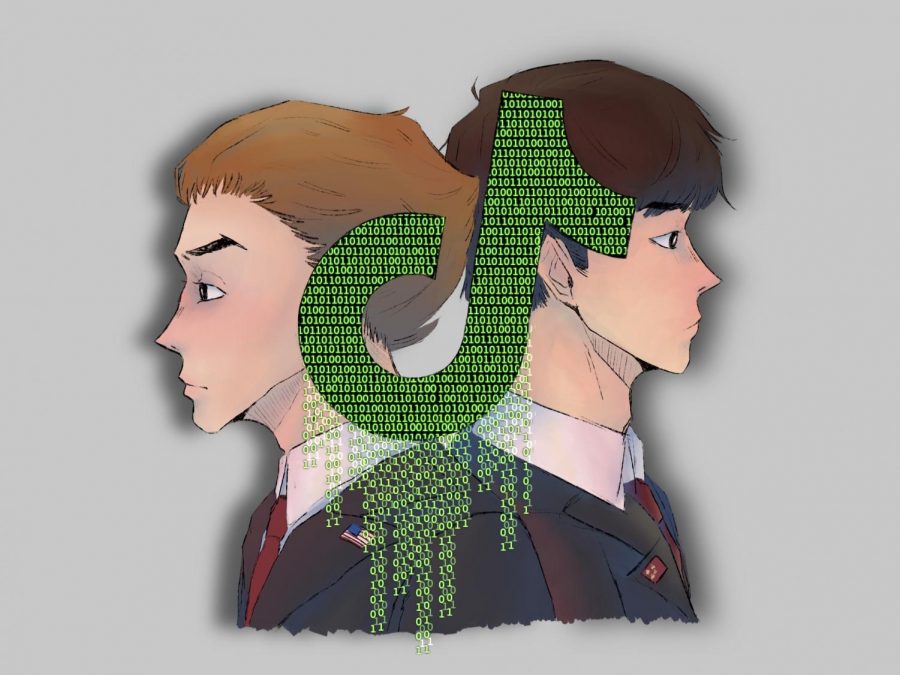Dark Truth Behind TikTok
How private is our data, really?
October 7, 2020
It’s after school and Neshini flops onto her bed as she scrolls through her phone. She clicks on the small icon on her phone and opens her TikTok account. Immediately her screen is filled with colorful works of art and book reviews of young adult novels. But behind the light hearted videos is the dark truth of data farming.
“I was worried about [the data leaks] because I enjoy [TikTok] a lot, but the fact that all my information could be shared or used by others is kind of scary,” junior Neshini Sathishkumar said. “It [bothers] me [because] one of my friends already had her bank account hacked into.”
It seemed like overnight Bytedance’s “TikTok” grew from one million downloads to two billion downloads in a matter of four years worldwide, quickly becoming one of the largest and most popular social media platforms across Gen Z and Millennial devices.
The Chinese-owned app, popularized by its 15-second video clips, came under fire last year for allegedly collecting and sharing private user information including emails, IP addresses, locations and facial characteristics according to Robert O’Brien, United States Security Advisor. On February 27, 2019 twenty lawsuits were filed by several families against TikTok and for stealing personal information from children under the age of 13 after failing to seek parental consent.
But, in a world dominated by technology, the idea of a safe and secure internet may be impossible to achieve. Apps like Facebook, Youtube, Instagram and Twitter all monitor users’ posts, comments, likes, shares and even their internet activity in order to personalize advertisements. The cloud security management is what is needed for one to know how to keep their info secure.
The Trump Administration declared that a ban would be placed on TikTok unless the company was sold to an American company by September 15. In response to the ban threat, TikTok sued the US government for depriving it of due process. And while ByteDance doesn’t intend to sell TikTok away, as of September 14 the computer company Oracle may be looking at a partnership with Bytedance. But its future is still on the rocks as TikTok awaits President Trump’s approval of the potential partnership.
“I don’t have TikTok. I’m just a spectator who enjoys politics in world news,” junior Eslia Egharevba said. “I didn’t care too much for the app [and] I heard that other countries [like] India… and the European Union wanted to or already had banned [TikTok]. The part that gets me is how the whole internet will inevitably change.”
“I’ll be sad [if TikTok gets shut down].” Sathishkumar says. “But if it [gets] deleted I’ll move back to YouTube.”




